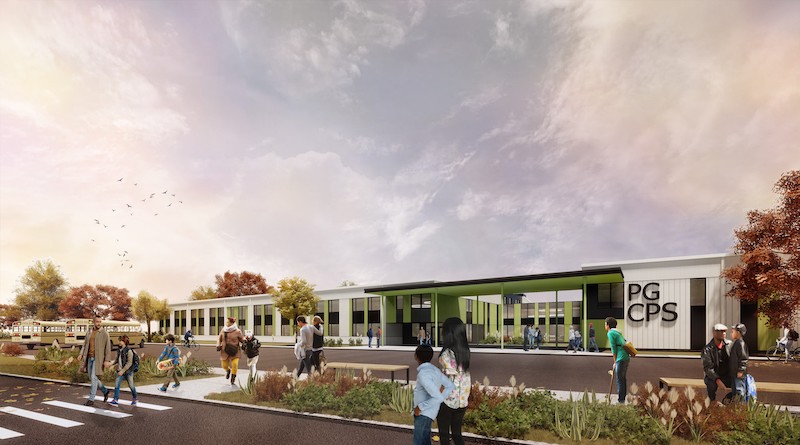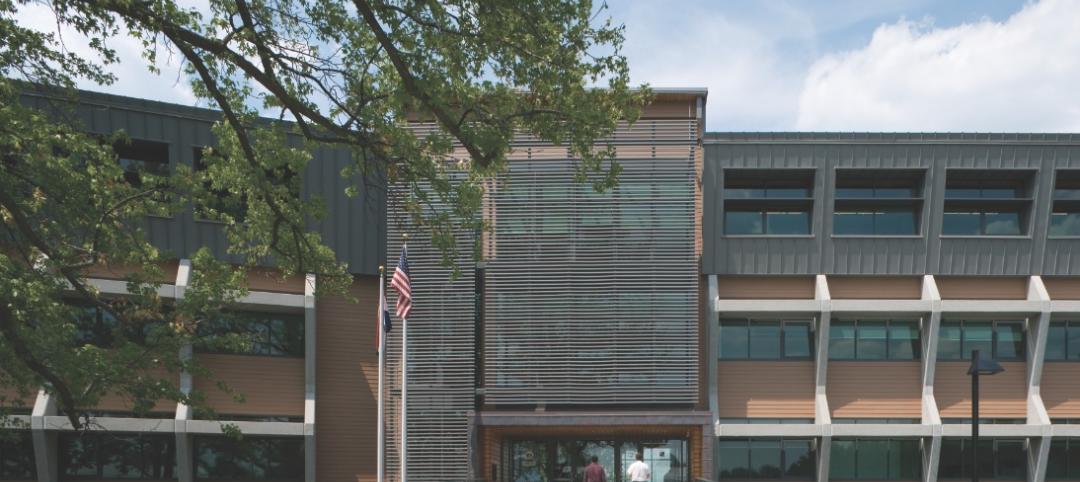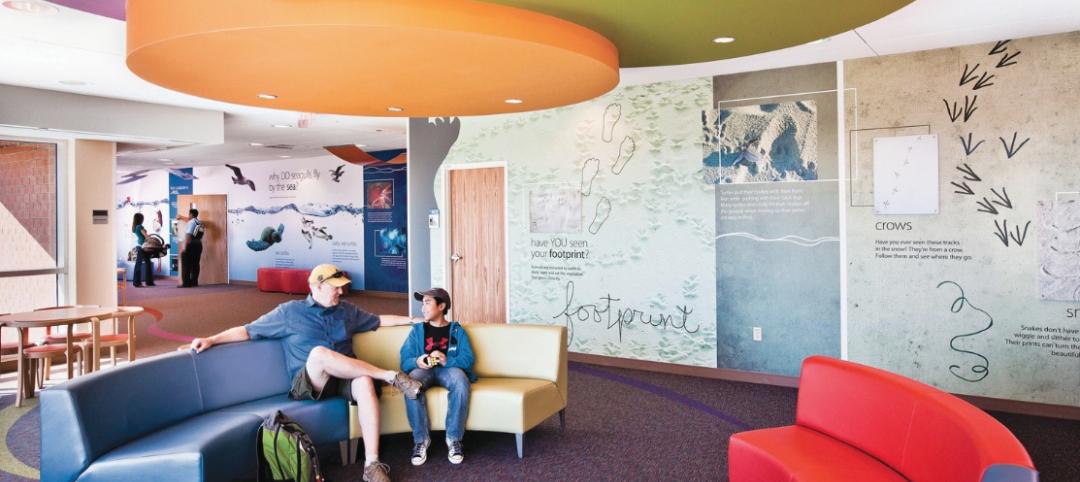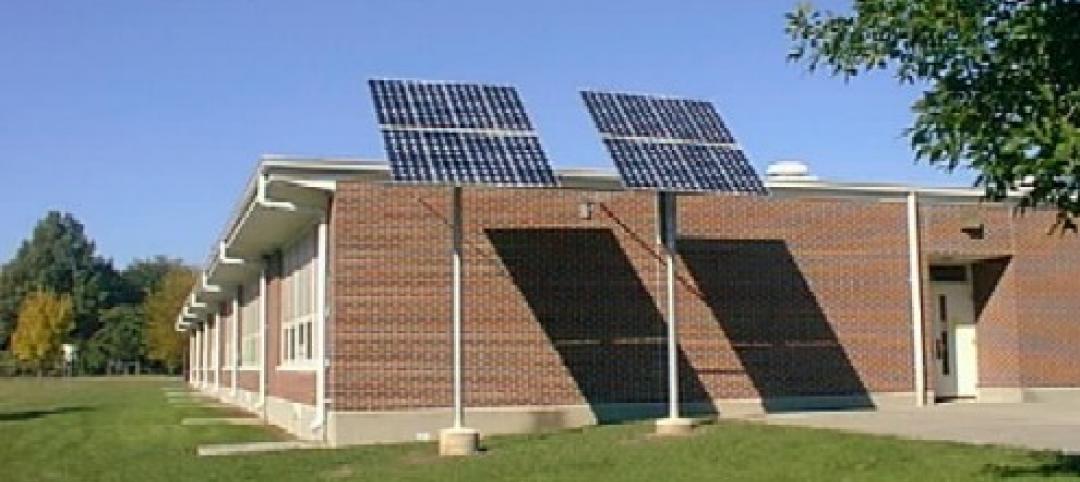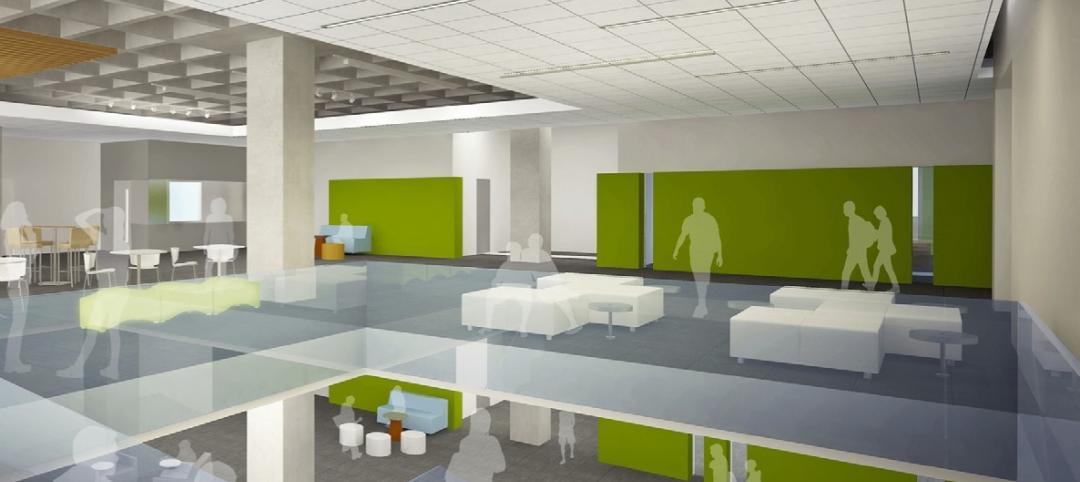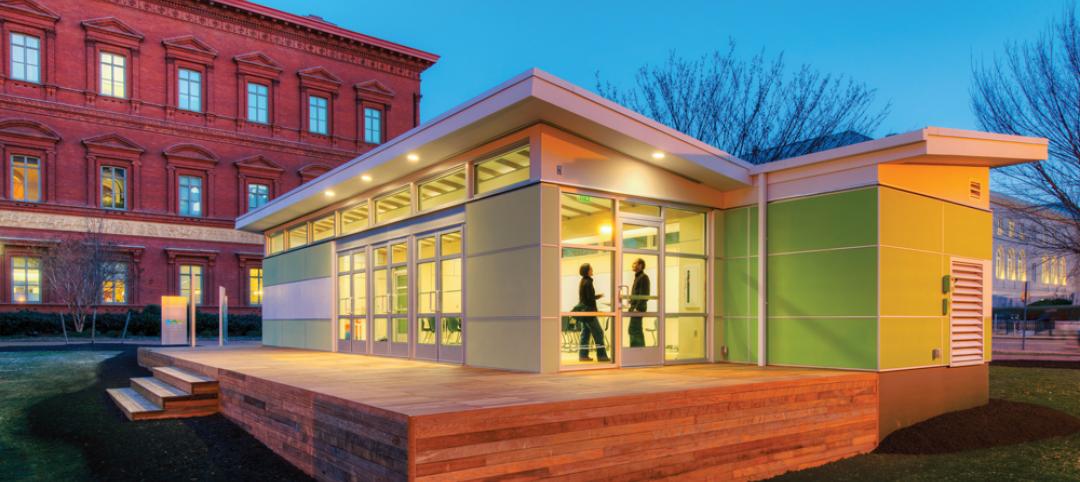Prince George’s County Public Schools is the second-largest school system in Maryland. It is also the second-oldest, with more than half of its 208 schools over 50 years old.
Like many school systems around the nation, Prince George’s faces rising enrollment with aging buildings and not enough seats. To address these shortfalls, the county has initiated an alternative construction financing program with some of the industry’s leading AEC firms, whose goal is to accelerate the time it takes to plan, finance, and build schools, and to reduce the cost of construction and maintenance.
COMMITMENT TO SMALL AND MINORITY BUSINESS PARTICIPATION
This consortium, known as Prince George’s County Education & Community Partners, this week broke ground on six K-8 and Middle schools whose completion is scheduled for the summer of 2023. The properties will be turned over to the consortium on July 1 to begin construction through a Public-Private partnership delivery approach. The consortium comprises Fengate Asset Management, an alternative investment manager focused on infrastructure, private equity, and real estate strategies; Gilbane Development Company (a financing member), Gilbane Building Company (the lead design-builder), Stantec (designer and AOR), and Honeywell (lead services provider).
Also see: Three AEC firms launch a mass timber product for quicker school construction
According to the Prince George’s County Public Schools “Blueprint Schools” website, Arel Architects, a certified county-based small business and minority business enterprise, is part of the design team and has a mentor protégé relationship with Stantec. Warren Builds Construction and Corenic Construction Group (also certified small and minority businesses) are on the construction team and have mentor protégé relationships with Gilbane. Three|E Consulting Group serves as the economic inclusion and compliance team.
The consortium is guaranteeing procurement of at least 30% of total eligible costs of the program to minority-owned businesses, community-based small businesses, and the creation of county-based jobs.
CUTTING THE PLAN-TO-BUILD TIME IN HALF
In Maryland, it typically takes seven years to plan and build a school. The consortium’s members believe the county’s alternative financing approach can cut that time in half, and save an aggregate of $174 million in deferred maintenance and construction costs for all six new schools, compared to a traditional construction procurement model.
The six schools under construction create 3,000 jobs and will result in upgraded facilities for more than 8,000 students and their families.
Prince George’s County claims to be the first public school system in the U.S. to leverage a full-scope alternative financing model to design, build, finance, and maintain a multi-school K-12 construction program.
“We have made tremendous strides in the area of long-range facility planning to advance from a capital program of primarily emergency repair projects toward a major modernization program with a plan to address each older facility in our inventory over the next 20 years,” says Dr. Monica Goldson, CEO of Prince George’s County Public Schools. “The Blueprint Schools initiative helps us accelerate delivery of new schools and modernizations for safe, sustainable, educational facilities to fully support 21st Century instruction for our students, staff, and community.”
Related Stories
| Sep 19, 2013
What we can learn from the world’s greenest buildings
Renowned green building author, Jerry Yudelson, offers five valuable lessons for designers, contractors, and building owners, based on a study of 55 high-performance projects from around the world.
| Sep 19, 2013
6 emerging energy-management glazing technologies
Phase-change materials, electrochromic glass, and building-integrated PVs are among the breakthrough glazing technologies that are taking energy performance to a new level.
| Sep 19, 2013
Roof renovation tips: Making the choice between overlayment and tear-off
When embarking upon a roofing renovation project, one of the first decisions for the Building Team is whether to tear off and replace the existing roof or to overlay the new roof right on top of the old one. Roofing experts offer guidance on making this assessment.
| Sep 16, 2013
Study analyzes effectiveness of reflective ceilings
Engineers at Brinjac quantify the illuminance and energy consumption levels achieved by increasing the ceiling’s light reflectance.
| Sep 11, 2013
BUILDINGChicago eShow Daily – Day 3 coverage
Day 3 coverage of the BUILDINGChicago/Greening the Heartland conference and expo, taking place this week at the Holiday Inn Chicago Mart Plaza.
| Sep 10, 2013
BUILDINGChicago eShow Daily – Day 2 coverage
The BD+C editorial team brings you this real-time coverage of day 2 of the BUILDINGChicago/Greening the Heartland conference and expo taking place this week at the Holiday Inn Chicago Mart Plaza.
| Sep 4, 2013
K-12 school design that pays off for students
More and more educators are being influenced by the Reggio Emilia approach to pedagogy, with its mantra of “environment as the third teacher”—an approach that gives Building Teams a responsibility to pay even closer attention to the special needs of today’s schools.
| Sep 3, 2013
'School in a box' project will place school in San Diego public library
Thinking outside the box, LPA Inc. is designing a school inside a box. With an emphasis on three E’s—Engage, Educate, and Empower—e3 Civic High is now being constructed on the sixth and seventh floors of a public library in downtown San Diego. Library patrons will be able to see into the school via glass elevators, but will not have physical access to the school.
| Aug 30, 2013
Modular classrooms gaining strength with school boards
With budget, space needs, and speed-to-market pressures bearing down on school districts, modular classroom assemblies are often a go-to solution.
| Aug 26, 2013
What you missed last week: Architecture billings up again; record year for hotel renovations; nation's most expensive real estate markets
BD+C's roundup of the top construction market news for the week of August 18 includes the latest architecture billings index from AIA and a BOMA study on the nation's most and least expensive commercial real estate markets.


